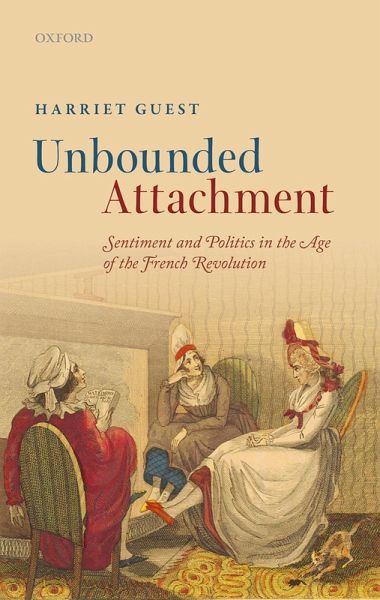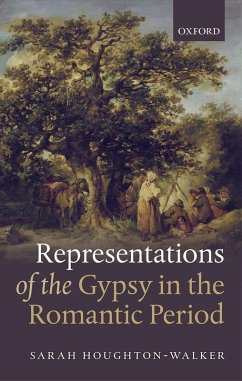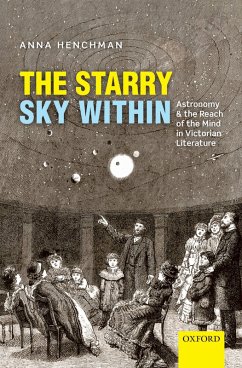
Unbounded Attachment (eBook, PDF)
Sentiment and Politics in the Age of the French Revolution

PAYBACK Punkte
21 °P sammeln!
Unbounded Attachment is about the uses of the language of sentiment in British women's writing from Mary Wollstonecraft to Jane Austen. It focuses on a range of writers for whom this language has the potential to hold together disparate elements in late eighteenth and early nineteenth-century society. This potential is important to the complex politics of Charlotte Smith's response, in her long poem The Emigrants, to the onset of war with France in 1793. The language of sentiment eases the transitions in Mary Robinson's writing between courtly praise for the French queen and liberal political ...
Unbounded Attachment is about the uses of the language of sentiment in British women's writing from Mary Wollstonecraft to Jane Austen. It focuses on a range of writers for whom this language has the potential to hold together disparate elements in late eighteenth and early nineteenth-century society. This potential is important to the complex politics of Charlotte Smith's response, in her long poem The Emigrants, to the onset of war with France in 1793. The language of sentiment eases the transitions in Mary Robinson's writing between courtly praise for the French queen and liberal political opinion, and shapes her attitudes to the exchange between personal sociability and the expanding commercial market for her work. For women writers such as Amelia Alderson Opie and Elizabeth Inchbald the display of sentiment makes it possible to negotiate between the demands of commercial success and sociable or political allegiance. William Godwin admired Mary Wollstonecraft's capacity for an all-embracing sentiment of 'unbounded attachment' to humanity, and posthumous accounts such as Mary Hays's, as well as fictional heroines loosely based on Wollstonecraft's reputation, emphasised the strength of feeling, the enthusiasm, which united her private character and her politics, and evoked powerful responses from both her immediate social circle and her readers. The success of Jane Austen's novels depended on the access they gave readers to the privacy of her heroines' minds, where their sensibility apprehends an underlying coherence in the apparently disjointed social worlds in which they lived.
Dieser Download kann aus rechtlichen Gründen nur mit Rechnungsadresse in A, B, BG, CY, CZ, D, DK, EW, E, FIN, F, GR, HR, H, IRL, I, LT, L, LR, M, NL, PL, P, R, S, SLO, SK ausgeliefert werden.













